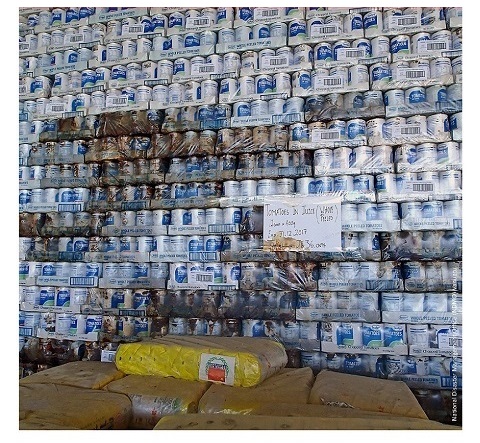The challenges of donated relief items and the benefits of cash donations
The National Disaster Management Office (NDMO) is grateful to receive generous assitance from individuals, groups, communities and countries in times of large scale emergency response. This assistance comes in many different forms, including technical assistance, logistics support, cash donations and donated goods. After the devastating effects of Tropical Cyclone Pam in 2015 Vanuatu received over 70 shipping containers of goods from all over the world. Such donations are known in the humanitarian response community as unsolicited bilateral donations or UBDs. While these items are donated by well-meaning individuals and groups, UBDs may not be appropriate for Vanuatu. UBDs instead of acting as relief items can create additional pressure to the already stretched humanitarian supply chain system. The items can incur significant costs in storage and handling fees. They can also have a substantial environmental impact if they are not usable or damaged and need to be discarded. For these reasons the NMDO is promoting responsible donations through the message that ‘cash is best’.

"...all donor agencies to support response efforts through cash donations rather than solicited goods. He said an effective way to help next time disasters strike is through cash donations as it would allow relief supplies to be purchased near the disaster site, avoiding delays, steep transportation and logistical costs"
- Director, Vanuatu National Disaster Management Office
The National Disaster Management Office supports public education to encourage monetary support and discourage unsolicited material donations to reduce the volume of inappropriate items sent to disaster sites. Please refer to the National Disaster Management Office list of partner agences (here) to see organisations that know Vanuatu well. The NDMO encourages anyone wanting to support emergency response in the country to do so through one of these agencies.
Some of the issues around unsolicited bilateral donations include the following:
- Arrive unannounced or with very short notice
- Faulty paperwork
- Lack of clearly defined consignee
- Non-standard items
- Incorrect packaging
Vanuatu has undertaken a review of its Disaster Act in light of events that unfold during TC Pam. The review process seeks to overcome legal and regulatory issues in disaster management including the influx of UBDs.
The Australian Red Cross have produced a summary of the issues surrounding cash donations in the Pacific. A copy of this report can be downloaded at the bottom of this page. The report lists a number of benefits of cash donations rather than unsolicited donations:
- Purchase to be made near the disaster site therefore supporting local economies, reducing transport cost etc.
- Cash is fast and flexible and allows relief Organisation to provide what is most needed and relevant at the time and allows people to make their own choices.
- It prevents the logistics issues that are created by UBDs in responses such as clogged ports; warehouses and other components of the logistics supply chain as well as taking time and resources from the response.
